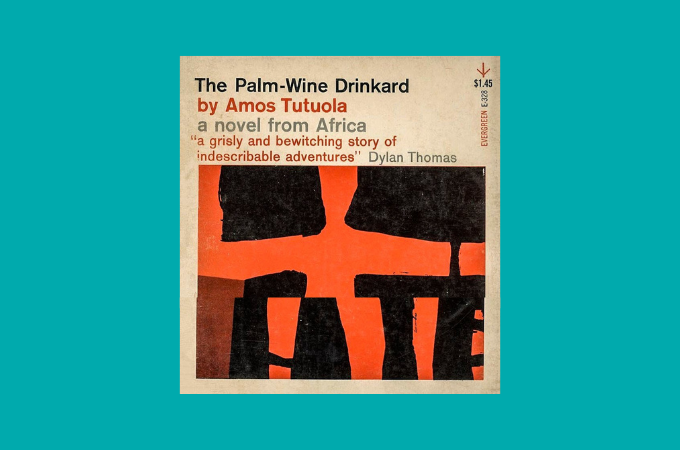
Ten years of age
Eight children
Nine miles square
560,000 palm trees
150 kegs
2pm
75 kegs
Sixth month
Two friends
Third day
One week
Two or three months
Four months
Seventh month
One mile
6.30am
One mile
Eight hours
A century
Midnight
2 o’clock in the midnight
6 o’clock early in the morning
Second day
2 o’clock at night
Quarter of a mile
6 o’clock in the morning
Two or three windows
Fifth month
Fifth day
Every fifth day
4 o’clock in the evening
2,000 british pounds
12 miles away
Two miles away
A few yards
A mile to the second
One day
A thousand petrol drums
Thousands
Forty kegs of palm-wine
9 o’clock am
Many hours
A few minutes
8 miles away
25 miles away
50 miles in the forest
One hour after
One hundred yards in the forest
Third day
One mile
Single compound
Single compound
Six months
Three and a half years
Ten years of age
Three feet and some inches
Five minutes
Three kegs out of four kegs
A hundred men
Midnight
Two hours
One o’clock in the midnight
Two miles away
Forty persons
Seven miles
28 pounds
One quarter of a mile
An hour
Three creatures
Three creatures
A hundred people
Three fellows
Three fellows
A good five days
Two soldiers
Three fellows
Three fellows
Three wonderful creatures
2 o’clock in the midnight
Two days
Three pence
Seven pounds
4 o’clock
7 o’clock
56 British pounds, 9 pence
Five hours
4 o’clock
8 o’clock pm
Third day
40 miles
6.30 pm in the evening
2 o’clock in the night
One quarter of a mile
Six feet
One o’clock am
Ten o’clock am
12 o’clock in the evening
Three feet high
8 o’clock in the night
11 o’clock in the night
One month old baby’s head
Twenty minutes
Half an hour
Five minutes interval
Two feet
Sometimes
One foot long
Five horns
Four feet
Four grains of rice
Four grains of corn
Four seeds of okra
Five minutes
Ten minutes
Thirty minutes
Third time
18 months
Two miles in the side bush
Five miles away
1.30 in the midnight
Two feet long
One foot
Fifty holes
Two minutes
Second country of the ghosts
80 yards
Four minutes
5pm
Hundreds of years
Two hours
Thirty minutes
Thirty minutes
2 o’clock
7 o’clock in the evening
4 o’clock in the evening
One quarter of a mile
Five hours
One hundred years
3 o’clock pm
9 o’clock in the morning
10 o’clock in the morning
5 o’clock in the evening
Second day
3 o’clock pm
1 o’clock in the night
2 o’clock in the midnight
90 %
Three months
Seven miles
More than a mile
Four miles
Six miles
One third of a mile
One thousand and fifty feet in length
200 feet in diameter
Forty yards
Two large hands
Seventy British pounds
6 pence
Three pounds
A month
Three hundred people
One million pounds
Twenty stages
Seven to eight years of age
Five minute intervals
340 cooks
One week
2 o’clock in the midnight
Three days and nights
Three months
One foot
One year and two weeks
A year
One hour
Two hours
Ten feet long
Six miles
Twelve miles
Two red creatures
Seventh day
Three days
Two creatures
Two creatures
Two creatures
Two red creatures
Two creatures
Two creatures
Five o’clock early in the morning
Two red creatures
7 o’clock in the morning
Half a mile from the town
Two red creatures
Half an hour
A thousand persons
Two red creatures
Thirty horns
Four miles away
Twenty feet
Second red creature
Five minutes
One town
Six long teeth
Half a foot long
Two red creatures
Two red creatures
Two red creatures
Two red trees
Two red trees
Two red trees
Two red trees
80 miles away
Two days
Two red creatures
Two red trees
Two red trees
Two red creatures
Three fellows
Hundreds of years
Three fellows
Three fellows
Two days
Three fellows
Three fellows
One year
Three miles square
10 o’clock
2,000 cowries
Six pence
Six pence
A mile to fifty
8 o’clock in the night
Two non-natives
2 o’clock in the midnight
2 days and nights
55 miles
Two days
Two days
19 miles
Two hands
Two persons
36 miles
30 attendants
11 days
7 days
6 days
7 to 8 in the morning
5 o’clock in the evening
Seven days
Ten days
Forty miles
Six more days
One hour
8 o’clock in the morning
Five minutes
Two alives
Ten kegs of palm-wine
Ten kegs
Two of my friends
One and a half years
Ten years
Twenty kegs of palm-wine
Two years
12 o’clock in the evening
Three hours
Fifty kegs of palm wine
Third day
400 dead babies
2 o’clock in the midnight
150 feet in diameter
45 persons
30 miles
8 o’clock in the morning
9 terrible creatures
9 terrible creatures
Ten feet in diameter
Two large eyes
Three miles
9 terrible creatures
9 terrible creatures
Three feet high
Five inches
9 creatures
8 leaves
9 terrible creatures
Two and a half days
Two weeks
Five feet away
One year
Ten miles
Two miles
One hour
4 o’clock in the morning
9 days
One pound
One pound
One year
One pound
One pound
One pound
One pound
One pound
One pound
Two hours
One year
One year
Four months
Three wives
Three wives
Three wives
Three wives
One hour
One year
Two cases
Four letters
Two cases
Fifteen days
A million mountain creatures
300 yards
7 o’clock in the morning
200 kegs of palm-wine
Three days
12 o’clock am
Noon
5 o’clock in the evening
7 o’clock
Six years
60 %
9 o’clock
10 o’clock
One year
2 o’clock in the midnight
Three times
Four days
Millions of leather whips
One hour
Two owls
Six kolas
One bottle of palm oil
Six kolas
Three months
Amos Tutuola (1920, Abeokuta – 1997, Ibadan) is a Nigerian writer. His novels are based on Yoruba mythology. When I first came across his first novel The Palm-Wine Drinkard, I was convinced that the nature of his lists were not flippant. Perhaps it was more my relationship to numerical facts within a narrative that made me feel convinced that there was a mapping taking place within the story. But the mapping does not simply chart a landscape geographically, it also oscillates between the quantifiable and the completely unquantifiable. It is a map of the possible ways to measure a novel.
The Palmwine Drinkard was published in 1952. It tells the story of a man who undertakes an adventure in a forest. The quest tale is written in broken English and told in the first person. It follows a man addicted to palm wine. Also the narrator, he is the son of a rich man and can therefore afford his own tapper, but when his tapper dies, he enters a world of supernatural creatures in search of the dead man.
Tutuola found a way to condense an entire universe with its specific temporalities and intricacies of relation into literature, reminding the reader of the fact that the first novels were spiritual autobiographies. How does one translate a new construct as old as time into the shape we know as “literature?” Tutuola has markers for time, lengths of time, distances traveled, lists of measurements from beginning to end: the more specific, the more incalculable. I took notes as I read the map.










Gbemi Tijani aka GTjMST June 20, 2021 10:33
Great book pub.in 1952.i possibly was a naivete when I first stumbled into the book.i have never read it .I m longing to possess or see a copy as a grownup now to read it as a an art & history enthusiast.I had read AdiituOlidumare by D.O Fagunwa written I Yoruba and I m sure the motifs of the novel will reflect or replicate with much more antiquities as Ogboju Ode Ninu Igbo Irumole ably translated by Wole Soyinka,Novel Laureate 1986. How can one possess a copy of The Palm Wine Drinkard ? Is it online? Can it be ordered ? Thanks to the authors that reckoned with it's relevance and historical worth as the first African novel to emerge before African colonies started pressing for self rule ,which came after the 60s. Gbemi Tijani MST